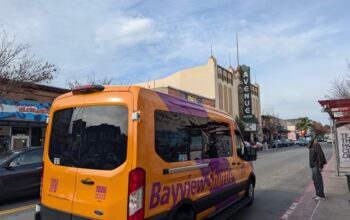The Left consists of economic illiterates. Creating jobs, getting people off of welfare and unemployment means nothing to them. Creating revenues for cities and counties, mean nothing. Providing products and services here instead of from China, means nothing to them. Instead they look at one number and wonder why it is not higher. Here is a hint: The more a corporations keeps, the more it can grow and expand—creating more jobs and more local tax revenues.
“This year, 7.5 million Californians voted to end property tax breaks for the state’s wealthiest residents and put an estimated $12 billion back into the state’s underfunded schools and local economies. But there weren’t enough votes. After wealthy business leaders and corporate landlords spent $72 million on misleading ad campaigns, Proposition 15 was defeated.”
Over $100 million was spent by unions to lie and misled the public. This was not about fairness—but getting more money to give to unions and special interests. These folks can’t even count—man more millions voted to continue allowing corporations to create jobs and grow—rather than giving money to government to flush down the toilet.
It’s time for California’s biggest corporations to pay their fair share

In summary
Despite Prop. 15’s defeat, Californians can still hold big business accountable: Fair tax reform can address the growing inequality in the state.
By Karen Edwards, Special to CalMatters, 2/1/21
Karen Edwards is a former media-technology executive at Yahoo, who volunteers for nonprofit media causes, [email protected]. She is a member of the Patriotic Millionaires, high-net worth Americans concerned about the destabilizing concentration of wealth and power in America.
As a native Californian, I’ve seen how growing inequality can tear apart communities and drain our state’s economy of the vibrant middle class it once championed.
It’s hard to ignore that one of the largest contributors to this destabilizing inequality is the fact that our tax code gives large corporations and wealthy Californians like myself special treatment.
This year, 7.5 million Californians voted to end property tax breaks for the state’s wealthiest residents and put an estimated $12 billion back into the state’s underfunded schools and local economies. But there weren’t enough votes. After wealthy business leaders and corporate landlords spent $72 million on misleading ad campaigns, Proposition 15 was defeated.
Leading up the election, the deceptive ads that aired across the state painted Prop. 15 as a tax on families and small businesses when, in reality, the laser-focused tax contained a specific carve out for all residential and agricultural property, as well as small businesses valued under $3 million, to ensure that only the wealthiest businesses in California – like JP Morgan, Chevron, Amazon and other big businesses – would be asked to pay more to support the communities that made them successful.
Thanks to the corporate tax loophole within Prop. 13, these wealthy corporations continue to place the burden of supporting the localities they operate in exclusively on individual taxpayers. Had Prop. 15 passed, individuals would not have seen their taxes rise a single penny. In fact, it’s estimated that just 10% of all California landowners would pay 92% of the tax.
There’s no reason that California should continue to grant wealthy corporations a gift found nowhere else in the United States, especially when it leaves citizens left to pick up the tab.
For example, Disney’s Burbank studio pays a 1976 rate of around $5 dollars per square foot, while nearby properties pay upwards of $150 to $200 dollars per square foot. Under this system, young businesses and startups who haven’t owned their property for decades are at a huge disadvantage. Why should California taxpayers continue to subsidize one of the largest companies at the expense of new enterprises?
In a post-COVID economy, new businesses and startups will be the driving force behind the recovery. As an individual who made my success from a startup with 10 employees – Yahoo – that grew into a globally-recognized brand within a few years, I worry that new businesses and startups won’t be able to get a good start in California when up against established companies. Now more than ever, we need new ventures and innovation to make it out of this economic crisis.
Despite Prop. 15’s defeat, Californians can still hold big business accountable and demand that corporations shoulder more of the state’s tax burden. With an expanded progressive majority in the state Legislature and the support of Gov. Gavin Newsom, fair tax reform can and must address the growing inequality in the state.



